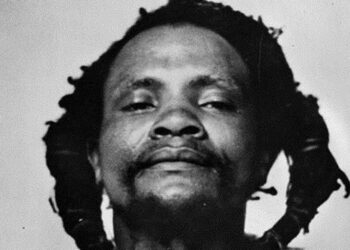Some people just seem to have the internal strength – the guts – to act on their own terms, push through their fears, to do what they believe is right and true. They’re not the loudest. They’re not the strongest. They don’t live privileged lives. They don’t (necessarily) take the biggest risks. Courage is simply the ability to do what you fear. We’re not born with it. We can’t learn it in a classroom.
Sometimes we don’t even know we have it until we’re tested – until we absolutely have no choice. Courage can’t be measured – but it can be built. The only prerequisite for that is a commitment to live a life not limited by fear of judgment or ridicule or failure. A commitment not to banish fear altogether, but to learn to live alongside it.
Courage is deeply personal. Yes, it can involve big, bold acts that make the world take notice. But often it’s just about the bravery of people down in the emotional trenches, quietly dealing with their own trauma – or just the ordinary stress of life. The most courageous people are those who have sacrificed their own comfort and freedom to stand up for principles of human dignity and liberty.
Here are the top 20 most courageous people in history.
1. Galileo Galilei
Galileo was willing to challenge the orthodoxy of the church through his own scientific discoveries. This commitment to truth and science came despite personal threats to his well-being.
2. Dietrich Bonhoeffer
German Lutheran Pastor who was consistently outspoken in his criticism of Nazism in Germany. Preferring to stay in the country of his birth, he was eventually arrested and executed in Flossian concentration camp.
3. Witold Pilecki
During WW2 Pilecki joined the underground Polish resistance. In 1943, he volunteered to smuggle himself into Auschwitz concentration camp so he could report on the holocaust to the allies. He then escaped Auschwitz and took part in the Warsaw uprising of 1944. In 1948, he was executed by the Stalinist secret police for retaining loyalty to the non-Communist Polish government.
4. Helen Keller
Overcame the dual disability of deaf-blindness to champion the deaf and helped improve societies treatment of deaf people.
5. Moses
After escaping from his slavery in Egypt led his people out of Egypt and across the Red Sea.
6. Jesus Christ
Jesus stuck to the truth of his message, despite the consequences. On many occasions, he had the opportunity to escape or change his message. But, he felt the right thing to do was to suffer outer humiliation and pain in order to leave a legacy of spiritual truth.
7. Thomas Jefferson
A key figure in the American revolution and foremost author of the Declaration of Independence. Jefferson sought to challenge existing policies on religious tolerance, education and slavery.
8. Giuseppe Garibaldi
National hero of Italy. Garibaldi led a volunteer army in the Italian wars of Independence. He played a key role in uniting Italy and ending foreign rule. He also fought in Latin America and became known as ‘The Hero of Two Worlds’.
9. Martin Luther King Jr.
A symbol of the fight against racial discrimination. Martin Luther King Jr. passionately supported the civil rights movement, despite virulent opposition and discrimination in parts of America.
10. Nelson Mandela
Nelson Mandela had the courage to fight against the unjust system of apartheid. For his political activities, he was sentenced to 20 years in prison, but he was released to lead a free South Africa.
11. Sir Edmund Hillary
New Zealand born climber, who with Sherpa Tenzing became the first person to climb Mount Everest in 1953 – at a time when many people had died in their attempt to scale this unknown peak. He also visited both poles, becoming the first person to complete the ‘triple’.
12. Winston Churchill
In 1940, Britain stood, alone against Nazi Germany. Some in Britain wanted to seek a deal with Hitler, but Churchill wanted to fight on, and he inspired Britain through their darkest hour.
13. Rosa Parks
Refused to give up her seat on a bus in Montgomery, Alabama and started a mass protest which led to the end of segregation on public transport.
14. Socrates
A Greek philosopher, Socrates was willing to die for his beliefs. Arrested for his philosophic teachings, Socrates was willing to accept death rather than change his opinions and beliefs. It is said he calmly accepted his fate.
15. Muhammad Ali
Refused to fight in Vietnam despite having the threat of public opprobrium and jail.
16. Maximilian Kolbe
A Polish Franciscan priest. During the Polish occupation, he was arrested twice by the Nazis but continued to offer shelter to Jews and Polish refugees. In 1941, he was sent to Auschwitz concentration camp, where he volunteered to take the place of a man condemned to death, showing great courage, faith and dignity.
17. George Orwell
Went to fight in the Spanish civil war because of his sympathies for the Republican movement. Also, gave up his privileged upbringing to work as a ‘down and out’ worker in Paris and London.
18. Mahatma Gandhi
Leader of the non-violent movement for Indian independence. Gandhi led the influential Salt Tax protest and was jailed several times for his protests against British rule.
19. Ida B. Wells
African-American activist. She investigated the practice of the lynching of black people in the US and wrote about it in newspapers. Her office in Memphis was burnt down after exposing a lynching. Despite considerable opposition, she was able to turn public opinion against the practice.
20. Desmond Tutu
Outspoken critic of the apartheid regime in South Africa. A leading figure in the reconciliation movement in the post-apartheid era.


































































































































































































